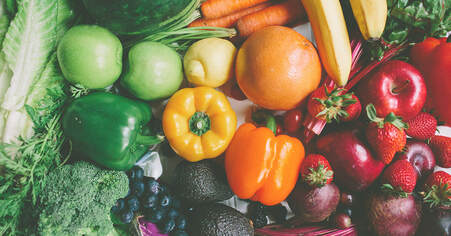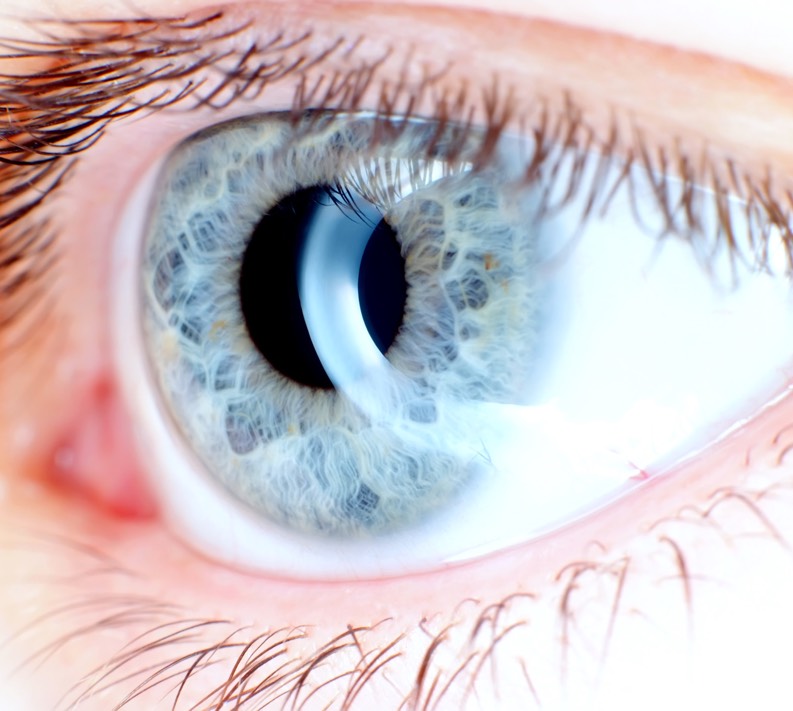 Eat all Fruits & Veggies Besides Green Leafy Vegetables for Maximized Lutein Absorption Eat all Fruits & Veggies Besides Green Leafy Vegetables for Maximized Lutein Absorption Some nutrients are synthesized by the human body while some aren’t and must be acquired by consuming those foods that are rich sources of these nutrients. These are called as essential nutrients which includes vitamins, minerals, proteins, fats, water and carbohydrates. Nutrition is integral for human health which includes proper functioning of all body parts and organs including the human eye as well. Our eyes provide us with vision and this is extremely important for our day-to-day functioning and a good quality of life. Despite this, we don’t take proper care to maintain a good eyesight by consuming those foods that cater for good vision. The most important causes of visual impairment include cataracts, glaucoma, age-related macular degeneration (AMD) and diabetic retinopathy. Statistics show that cataract and AMD cases are only going to increase in numbers in the coming years which requires intervention as soon as possible. Intervention strategies are usually in the form of nutrient intake and when we talk about eye health one cannot but mention the involvement of lutein and zeaxanthin. Lutein and zeaxanthin are carotenoids that are together referred to as xanthophylls or macular pigment accumulating in the macular region of the retina and protecting the retinal cells needed for vision. Besides being integral for eye health lutein is also absolutely necessary for memory and brain function. It is known that improving brain health in adults is not easy and our target should be to improve nervous system functioning in infants when they are still in the development stage. Carotenoids are plant bioactive compounds that cannot be synthesized by mammals but must be consumed in the form of fruits and vegetables. But this doesn’t make lutein and zeaxanthin essential nutrients and research is still going on whether they should be included in the list too! Lutein is amazingly present in the cord blood at the time of delivery of the newborn transferred to the fetus via the placenta which makes the lutein concentration in the newborn dependent on the maternal concentration levels. Soon after birth the newborn receives lutein from mother’s milk. Studies on carotenoids concentration in breastmilk show that they are dependent on maternal dietary intake. This means that every newborn has different lutein levels as every mother follows a different dietary routine. Analysing breastmilk carotenoids might be the best way to find the link between maternal, breastmilk and infant carotenoids status. Carotenoids Levels in Infants: A Poland Study This was a study that consisted of three study sessions at the 1st, 3rd and 6th month of lactation during which breastmilk samples were collected, anthropometric measures assessed in infants as well as mothers, mom’s psychological state evaluated and the infant’s psychomotor development measured during the 6th month. All the participating moms were requested to fill a questionnaire that enquired about their lifestyle, health and nutrition during the preconception, prenatal and postnatal periods. The study was thrown open to anyone between 18 and 45 years of age who had given birth to a single, healthy infant. After applying exclusion criteria, the study included 53 mother-infant pairs. Most mothers had normal BMI during the first month of lactation, 78% of them had a normal weight at the third month and 85% during the sixth month. 47% were bearing their first child and 53% of the infants born were females. All the participants were requested to collect breastmilk at home: pre-feeding and post-feeding breastmilk was collected 24 hours prior to each study visit during 4 different time periods to compensate for any difference in carotenoid concentration. Macronutrient composition including energy and fat content was analysed three times and the average was used for comparisons. Carotenoid concentration was assessed using milk samples with the help of high-performance liquid chromatography. A 3-day dietary recall was taken at the 3rd and 6th month of lactation which helped the researchers predict macronutrient and micronutrient intake. These were used to calculated dietary fibre and fatty acid profiles. Lutein and other nutrient intakes were calculated and dietary data and supplement information was noted. Height, weight and BMI measurements were taken for all participating mothers. Results
Lutein Content: Mother’s Milk Versus Infant Formula Some infants don’t accept breastmilk and the parent is forced to feed them infant formula which drastically differs in lutein concentration compared to mother’s milk. Human milk contains higher concentrations of the carotenoid comparatively. A study in Poland enrolled exclusively formula-fed and breast-fed infants born between 37 and 42 weeks of gestation for a 12-week study period. Inclusion criteria included that mothers of these infants consumed at least 6 cups of dark green leafy vegetables (good sources of lutein) per week. Lutein fortification in infant formula was to be 20, 45, 120 or 225 mcg lutein per liter of formula. Formula-fed infants were fed with any one of the four study formulas. Human milk was expressed using a breast pump and a mid-afternoon sample represented the 24-h concentration of lutein. 40 infants were enrolled in the study of which 14 were fed with human milk and 26 were fed with formula milk. 6 of them could not complete the study leaving the researchers with 34 of them. Results showed that mean lutein concentration in human milk samples were similar at weeks 4,8 and 12. Lipid content was 41.5 g/l, lutein content was 21.1 mcg/l and average amount of lutein per gram of milk fat was 0.492 mcg. Infants fed with mother’s milk had higher lutein concentration than any of the infants fed with any of the four study formulas. But lutein concentration did increase from baseline in all formula-fed infants except in the unfortified group. After the 12-week study period human milk-fed infants had a 6-fold higher mean serum lutein concentration than the unfortified formula-fed infants. Lutein levels did increase in formula-fed infants as well depending on the dose of lutein fortification given at the end of the 12-week period. Serum lutein concentration increased by 3.7 mcg/l for every 1 mcg/l increase in human milk lutein concentration in breastfed infants but it was only 0.9 mcg/l for every 1 mcg/l increase in formula lutein concentration in infants fed with formula milk. Clearly human milk-fed infants had greater lutein concentrations compared to formula milk-fed infants. Breastmilk Facilitates Lutein Absorption Carotenoids protect our eyes (through absorption of blue light) by safeguarding the retina where they are highly concentrated. Lutein and zeaxanthin are transported in plasma in LDL and HDLs. In vitro studies show that lutein was delivered to cells by LDL via the LDL receptor while zeaxanthin was delivered by HDL via a scavenger receptor. The brain and the retina contain a lutein-binding protein called the steroidogenic acute regulatory domain protein (StARD3) whose concentration depends on the lutein concentration available in both these body organs thereby playing an integral role in lutein intake. We have studies showing that there is an increased absorption of lutein from breastmilk compared to formula but another study has taken it a step forward proving that there is not only increased absorption in the plasma but also increased deposition of lutein in the retina and brain. The researchers theorized that increased lutein absorption from milk might be due to two factors that differ in formula: the milk-fat globule structure and milk lipases. Lutein is a fat-soluble carotenoid that actually requires fat for optimal absorption. So, lipid structure in the feed affects lutein absorption. Whereas the infant formula used in this study has a simple fat structure that’s based on high-oleic safflower oil, soybean oil and coconut oil. Formula lipids are designed in a certain way to increase shelf life and such a difference in lipid architecture could be one of the reasons for increased lutein absorption in breast milk compared to formula milk. Besides this difference, formula milk also lacks key bioactive ingredients from the mother that’s present in human milk-lipases. Lipases help in lipid digestion within the infant gut and this absence in formula milk once again leads to decreased lutein absorption. Lipases and structure differences in the milk-fat globule lead to enhanced carotenoids absorption from breast milk and this shows that infant formula cannot rely on supplements as a means to increase lutein concentration. It is ideal that researchers use blueprint of milk as a model to design novel lipid formulations with the right kind of architecture for increased absorption and improve enzyme presence for enhanced carotenoid delivery. First, this once again reinstates the fact that every mom should breastfeed unless it’s an unavoidable circumstance. Second, moms should ensure to increase their consumption of fruits and vegetables for increased dietary intake of lutein and zeaxanthin. Maximize intake of eggs, corn, kiwi, squash, pumpkin, spinach, orange and green bell pepper, cucumber, seedless grapes and peas for significant lutein absorption by the body. References Serum Lutein Concentrations in Healthy Term Infants Fed Human Milk or Infant Formula with Lutein: https://link.springer.com/article/10.1007/s00394-009-0047-5 Carotenoid Content in Breastmilk in the 3rd and 6th Month of Lactation & its Associations with Maternal Dietary Intake & Anthropometric Characteristics: https://www.ncbi.nlm.nih.gov/pmc/articles/PMC6356523/ How Does Breast Milk Enhance Lutein Absorption? https://academic.oup.com/jn/article/148/1/1/4823729 Fruits & Vegetables that Are Sources for Lutein & Zeaxanthin: The Macular Pigment in Human Eyes: https://bjo.bmj.com/content/82/8/907 Comments are closed.
|
AVOID FRAUD. EAT SMART+91 7846 800 800
|
- Home
- Written Testimonials
- Consult
- Clinics
- Blogs
-
Diet & Nutrition
- Diabetes Reversal
- IVF IUI not needed for PCOS PCOD Infertility
-
Medical Nutrition
>
-
Disease & Conditions
>
- Infertility | PCOS
- Diabetes Mellitus
- Cholesterol
- Hypothyroid
- Kidney Problems
- Hypertension
- Cardiovascular Diseases
- Liver Diseases
- Gastro intestinal disorder
- Cancer
- Metabolic Disorders
- Orthopedic Disorders
- Eating Disorders
- Dietary Recall
- Weight Record Filled By Clients
- Online Payment Transaction Details
- Online Clients Weight Check Form
- Our Program Package Service Charges
- Weight Record 2017 Clients
- Measurements sent by Clients
- Terms & Conditions Of Payment
- Thanks. Your Form is Submitted
- Video Testimonials
- Lifestyle & Wellness
- Lifestyle & Wellness Blog
- Allergy & Intolerance
- Weight Loss / Gain
- Weight Loss / Slimming Blog
-
Disease & Conditions
>
- Life Cycle Nutrition >
- Sports Nutrition >
- Integrity in Nutrition
- Knowledge Centre
© COPYRIGHT 2022. ALL RIGHTS RESERVED. FRST HEALTHCARE PVT LTD.
Dr. Nafeesa Imteyaz of First Eat Right clinic, is the Best Dietitian Nutritionist in Bangalore. Best Dietitian Nutritionist in Pune. Best Dietitian Nutritionist in Hyderabad. Best Dietitian Nutritionist in Chennai. Best Dietitian Nutritionist in Mumbai. Best Dietitian Nutritionist in Delhi. Best Dietitian Nutritionist in Kolkata.



